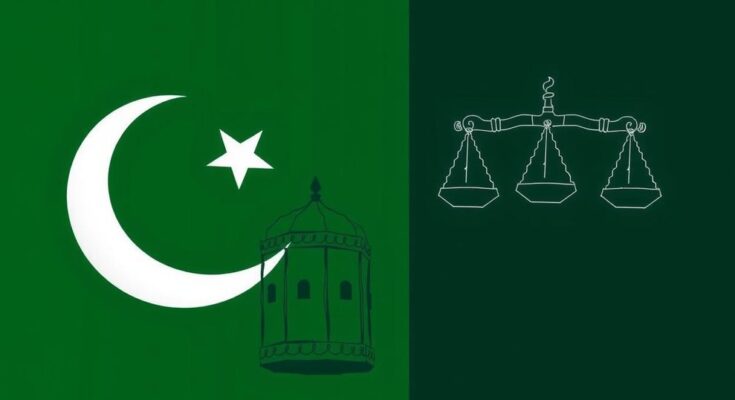As the Commonwealth meeting approaches, urgent calls arise to suspend Pakistan due to its blasphemy laws that have led to wrongful arrests, deaths, and systemic human rights abuses, particularly targeting religious minorities. The laws’ misuse fosters a culture of violence and impunity, contradicting Commonwealth values, prompting NGOs to advocate for action that would compel Pakistan toward meaningful reforms. The Commonwealth must act to uphold its principles and offer hope to victims of such injustices.
As the Commonwealth Heads of Government Meeting approaches in Samoa from 21-26 October 2024, urgent cries for action echo in response to the worsening human rights situation in Pakistan. Central to these concerns are the blasphemy laws that have unjustly imprisoned, harmed, and even killed numerous individuals, particularly targeting religious minorities like Christians and Ahmadis without lawful proceedings. The ramifications of these laws create an unsettling atmosphere where the innocent are exposed to threats of mob violence and wrongful accusations, casting a shadow over Pakistan’s attempts to present itself as a democratic nation. Each blasphemy accusation often sparks public frenzy, leading to horrifying outcomes—a stark contradiction to the values advocated by the Commonwealth, which stands for lawful governance and human rights. Pakistan’s blasphemy laws, although not officially leading to executions, have sparked a troubling climate of violence, resulting in extrajudicial acts of revenge and mob-actions that rarely meet lawful retribution. Such incidents have targeted not only religious minorities but also the vulnerable, including students and those with mental health issues, eliciting chilling reports of violence in broad daylight with scant response from law enforcement. The failure to protect these citizens illustrates the systemic neglect by the Pakistani government regarding justice and human rights. The Commonwealth Charter emphasizes the significance of democracy, human rights, and the rule of law, making the Pakistani government’s inaction alarming as it stands opposed to these foundational principles. Despite international insistence for reforms, the Pakistani government has continuously resisted changes to its blasphemy laws, perpetuating a cycle of fear and violence. Accused individuals are frequently denied fair trials, becoming victims of instant mob justice, while law enforcement often fails to intervene, perpetuating a dangerous culture of impunity. With a history of previous suspensions over human rights breaches, the Commonwealth faces a pivotal moment. If action is not taken against Pakistan, it could undermine the Commonwealth’s credibility and tacitly endorse the ongoing violations. The Commonwealth must not allow the transgressions of one member nation to tarnish the integrity of the entire organization. In response to Pakistan’s blatant disregard for human rights, 17 human rights NGOs from the EU and other regions are calling for Pakistan’s suspension from the Commonwealth. Such a move would not only reprimand Pakistan’s poor human rights practices but also encourage reforms by demonstrating a commitment to the Commonwealth’s core values of democracy and justice. As focus turns to the upcoming meeting in Samoa, the outcome could prove crucial for the Commonwealth’s moral posture. Suspending Pakistan could act as a lifeline for those suffering under oppressive laws, sending a potent signal that the global community will not tolerate human rights violations among its ranks. The stakes are high, and this could mark a defining moment for the Commonwealth in standing firm against egregious human rights breaches.
The call for Pakistan’s suspension from the Commonwealth is anchored in the urgent need to address severe human rights abuses propelled by the nation’s controversial blasphemy laws. These laws, often misused against religious minorities and political figures, have fostered an environment of fear and violence. With documented killings and widespread mob actions against innocents, international organizations are pressing for reform and accountability, signifying a crucial test for the Commonwealth’s stance on human rights. As the Commonwealth prepares to convene, the implications of its decisions regarding Pakistan might resonate far beyond its borders, impacting human rights campaigns and the fight for justice worldwide.
The ongoing human rights crisis in Pakistan, driven primarily by blasphemy laws, necessitates swift action from the Commonwealth. With a history of suspensions, inaction now could endanger the organization’s credibility. By suspending Pakistan, the Commonwealth can reaffirm its dedication to safeguarding democracy and human rights, providing hope to oppressed individuals and reaffirming that such violations are intolerable.
Original Source: eutoday.net



